Odd Gods is a '90s-style RPG about the '90s
Time-traveling teens go on an excellent adventure in an RPG with turn-based but simultaneous combat.
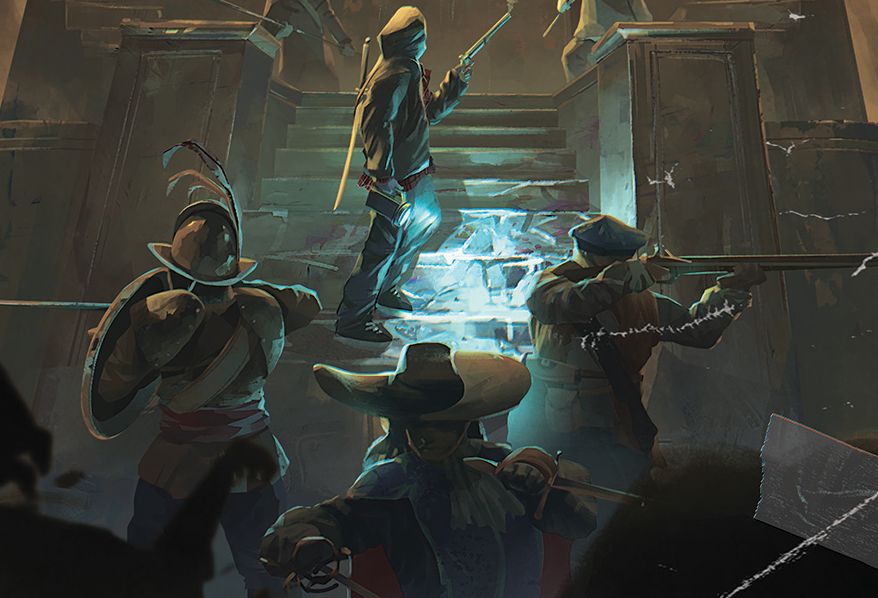
Two things are notable about the pre-alpha demo of Odd Gods I'm playing. One is the characters I choose from: either a modern-day skate kid or goth. Soon I meet a Scotsman from three centuries earlier armed with a saber, who becomes my companion, and the two of us explore a building full of junk from different eras, find some secret doors and a half-finished ritual, and fight cultists. Which brings me to the second notable thing.
I gave orders to both characters, but they didn't complete those orders until I hit end turn—at which point my opponents moved as well. When I took a shot at an enemy the hooded jerk ran out of the way and the shot went wide. When I aimed a kick at a cultist, they retaliated in kind and we knocked each other to the floor like a scene out of a slapstick comedy.
Odd Gods is an RPG about time, in both its story and its systems. The main characters are time-traveling kids from the '90s who pick up companions from other timelines as they bounce between them, and the combat combines turn-based and real-time in a way that's reminiscent of Frozen Synapse but hasn't been done in many other games.
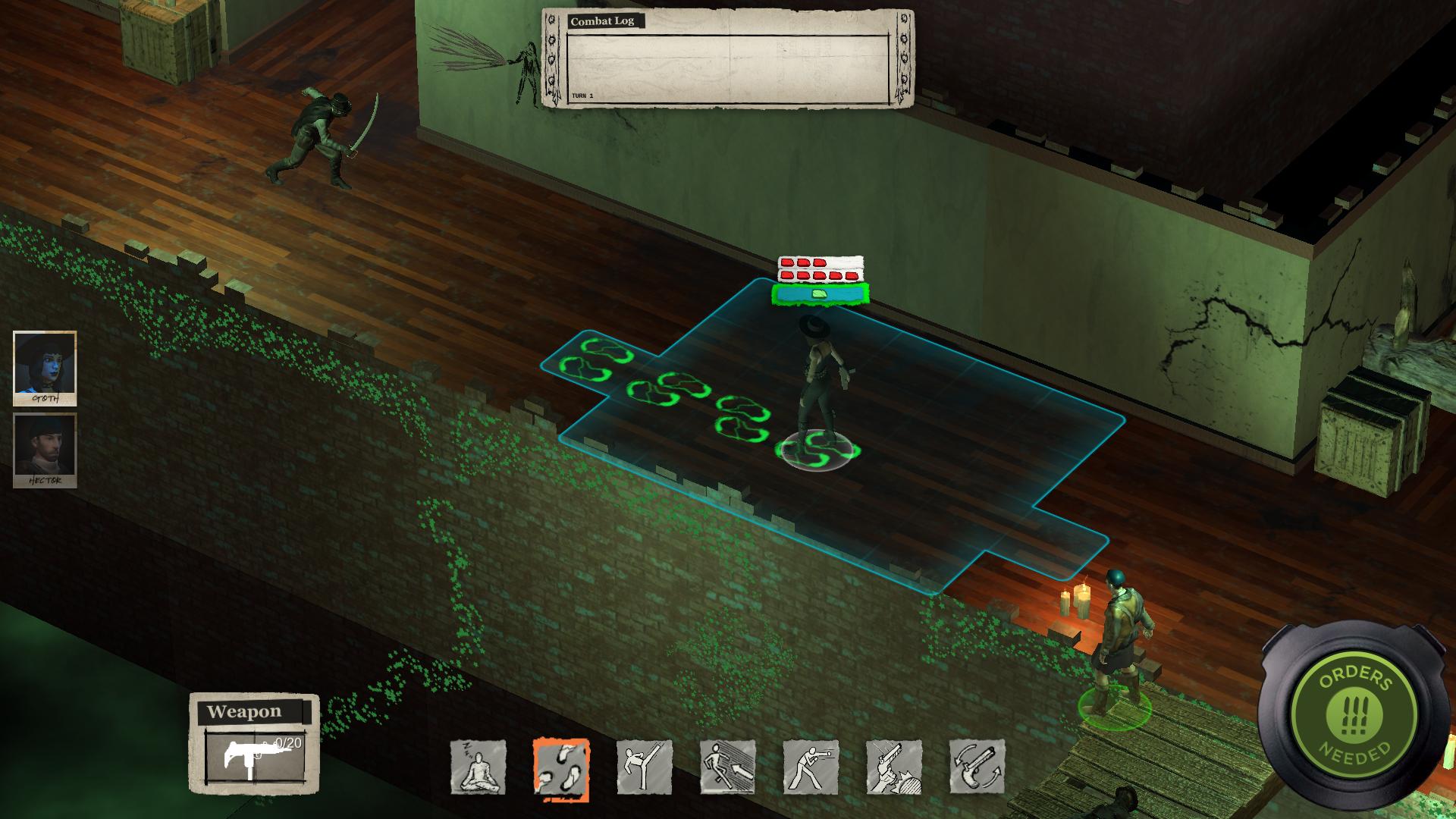
Gil Maclean is director of Inn Between Worlds, an Australian indie studio made up of former employees of bigger developers like EA and Irrational. He tells me what the deal is with this top-down time-travel RPG.
PC Gamer: Is this your first indie project?
Gil Maclean: Strictly speaking it's Inn Between Worlds' first indie project. The team is made up of people who've done at least 10 years triple-A, maybe five to 10 years indie. We've got a lot of experience on the team. The first project I ever worked on was a remake of Ultima V, which was a mod project. We received decent critical praise, remade an open-world RPG using a modern engine. I was just a writer and tester on that. From there I went on to professional game dev, which I've been doing for the last 15 to 20 years.
You end up in a dialogue with most of the characters you meet, they all have their own opinion on what was the best music genre of the '90s.
Gil Maclean
What's the high-level pitch for Odd Gods?
Keep up to date with the most important stories and the best deals, as picked by the PC Gamer team.
GM: It's a hardcore '90s-style RPG about the '90s. We focus a lot on all the tropes endemic to the '90s, all the archetypes and so on. If you look at high fantasy like D&D or Pillars of Eternity or Divinity, which are all awesome, they all fall along certain lines. You have paladins, you have fighters, you have rogues. You have turn-based or real-time-with-pause combat, you have spells, and so on. That's cool but we think we should focus on aspects of the '90s so instead of a fighter or paladin or rogue you roll a subculture. That could be a skateboarder or a goth or a dramahead or a jock.
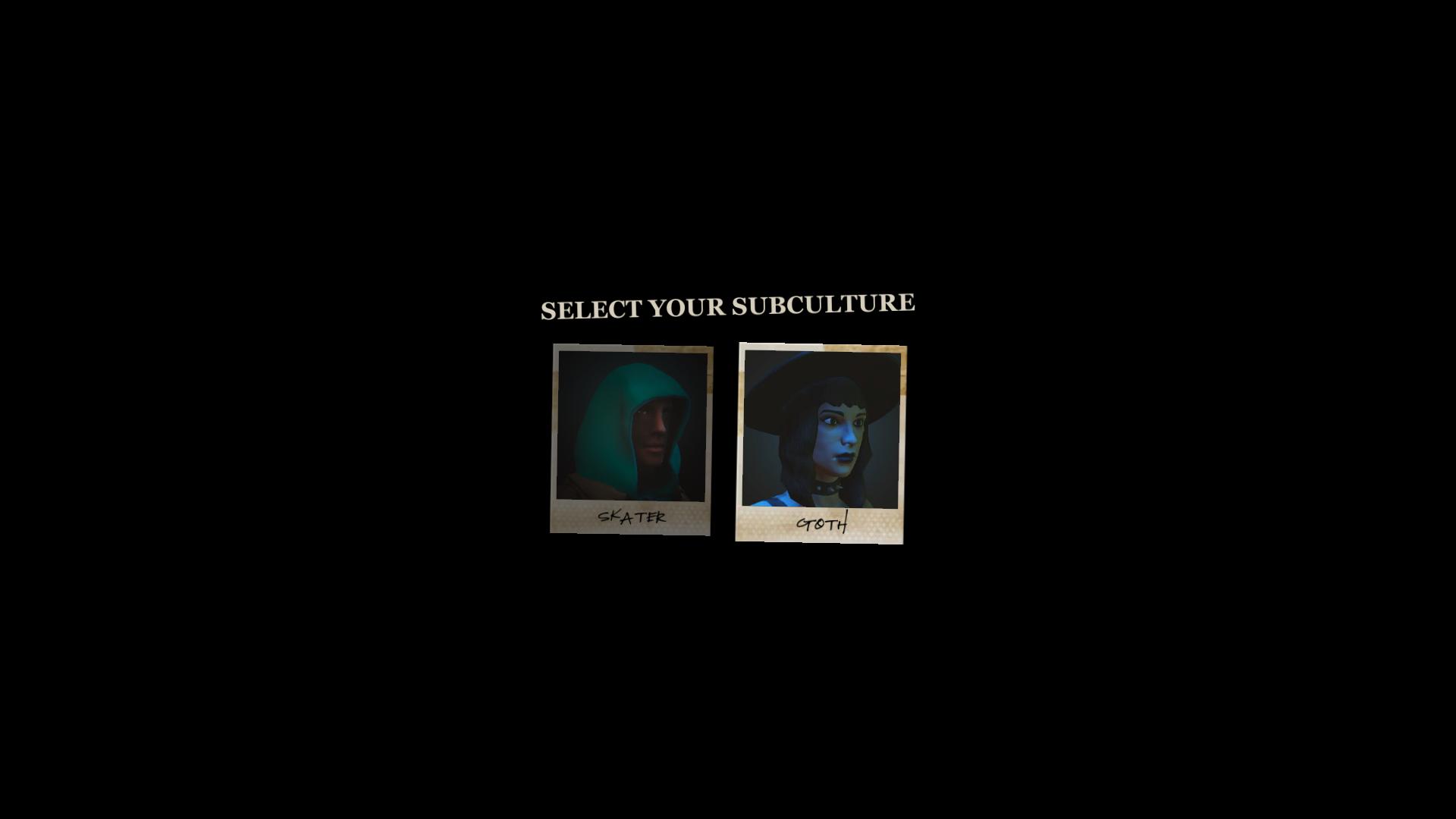
Ditto instead of copying an alignment system from D&D, we rolled our own alignment system based on the '90s theme we're trying to sell, so instead of evil/neutral/good you have Mainstream Music, Alternative Music, and Underground Music. On the other axis you have different music genres like pop-punk, hip-hop, alternative, grunge. No disrespect to Blink-182, I would consider them Mainstream Pop-Punk. But you could also have Dead Kennedys as Underground Pop-Punk.
What subculture you choose and what music genre you choose determines how people react to you in the world. The example we've been using, if you travel through space-time back to the War of the Roses in medieval England then there are knights on horseback running around, you don't know what to do. You get ambushed on the King's Highway by this burly dude, it looks like he's wearing the tattered remains of a sweatshirt. You realize that's a jock from the '90s. He sees you and he puts down his blade and he's like, "Can you get me out of here? Where am I? I've just been beating people up for ale on the road for years." And then you get talking, sitting by the campfire and he asks you what music you're into. You say, "I'm a goth and I'm into industrial metal." He's like, "That's weird. Why do you like that?"
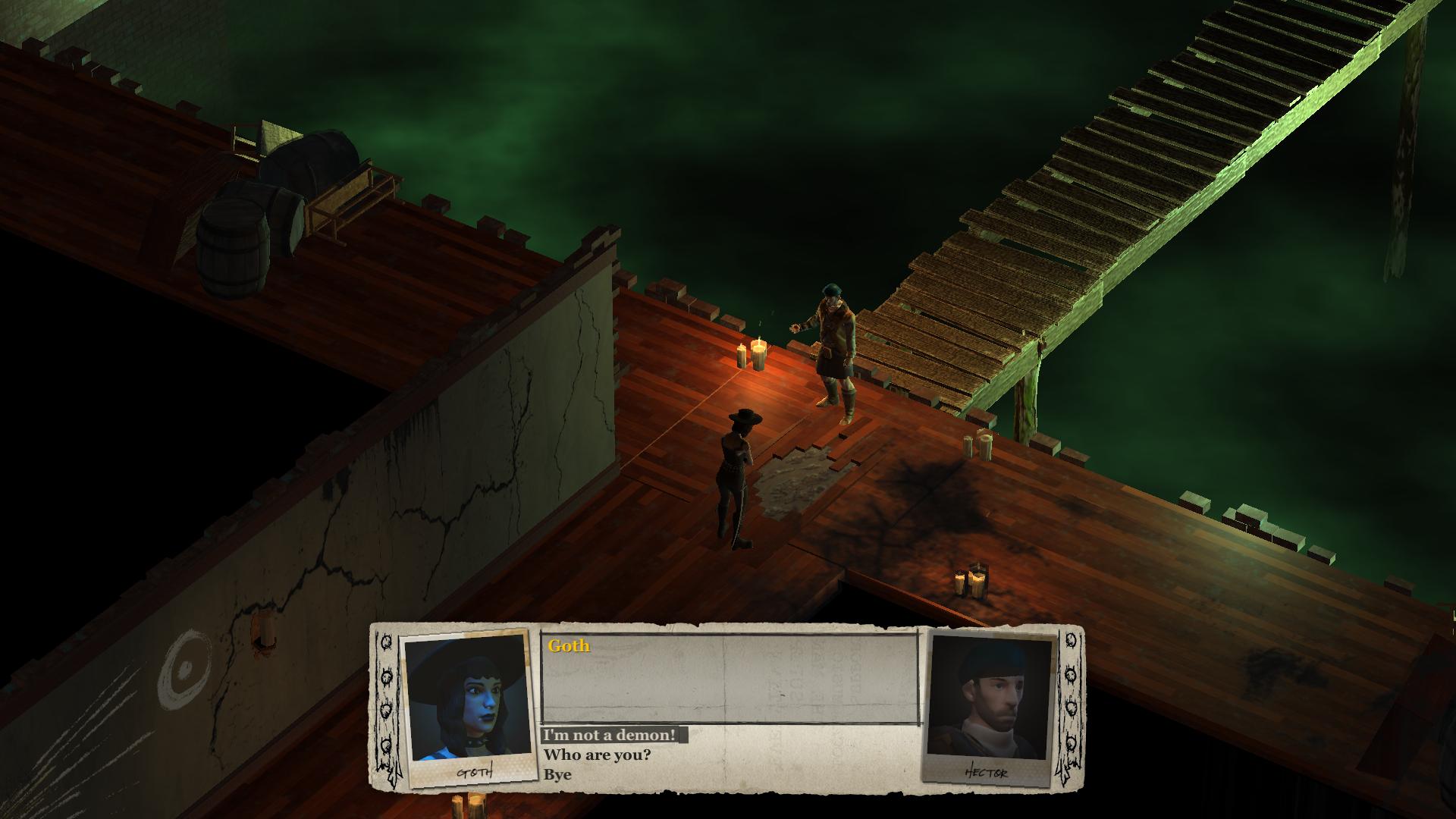
You end up in a dialogue with most of the characters you meet, they all have their own opinion on what was the best music genre of the '90s. When you're recruiting D&D party members [alignment] determines whether they will respond well to you or not. Which for us, that's consistent with what it was like living in the '90s, the pre-digital era. What subculture you belonged to, what music you liked, really determined how people treated you.
It was tribal.
GM: Absolutely. And that feeds back into our main storyline as well.
Which is about time-traveling kids from the '90s. Was Bill & Ted an influence? Is that a thing you're referencing?
GM: To a degree. I love Bill & Ted. In Bill & Ted they travel through time and collect famous historical characters to join their party, to save the world. That's cool, but for us that's not actually authentic to the '90s. In our game there is no chosen one. You're not a prophesied hero, you are literally just a kid from the '90s and you have to struggle as they fall through space-time portals and visit alternative realities.
You do collect historical characters along the way, you can meet people but it still ties back into our main theme. Subcultures in the '90s were pretty rebellious, so each historical timeline you visit has a twist on it. The basic twist is the other guys won, the rebels won. In the demo you travel back to the mid-1700s and you've got a Scottish Jacobite rebel, he's a well-trained musketeer. In the real timeline they lost, the English won. In Odd Gods they win that battle and they take over the UK, which is now a Scottish kingdom. Ditto one of our other characters...
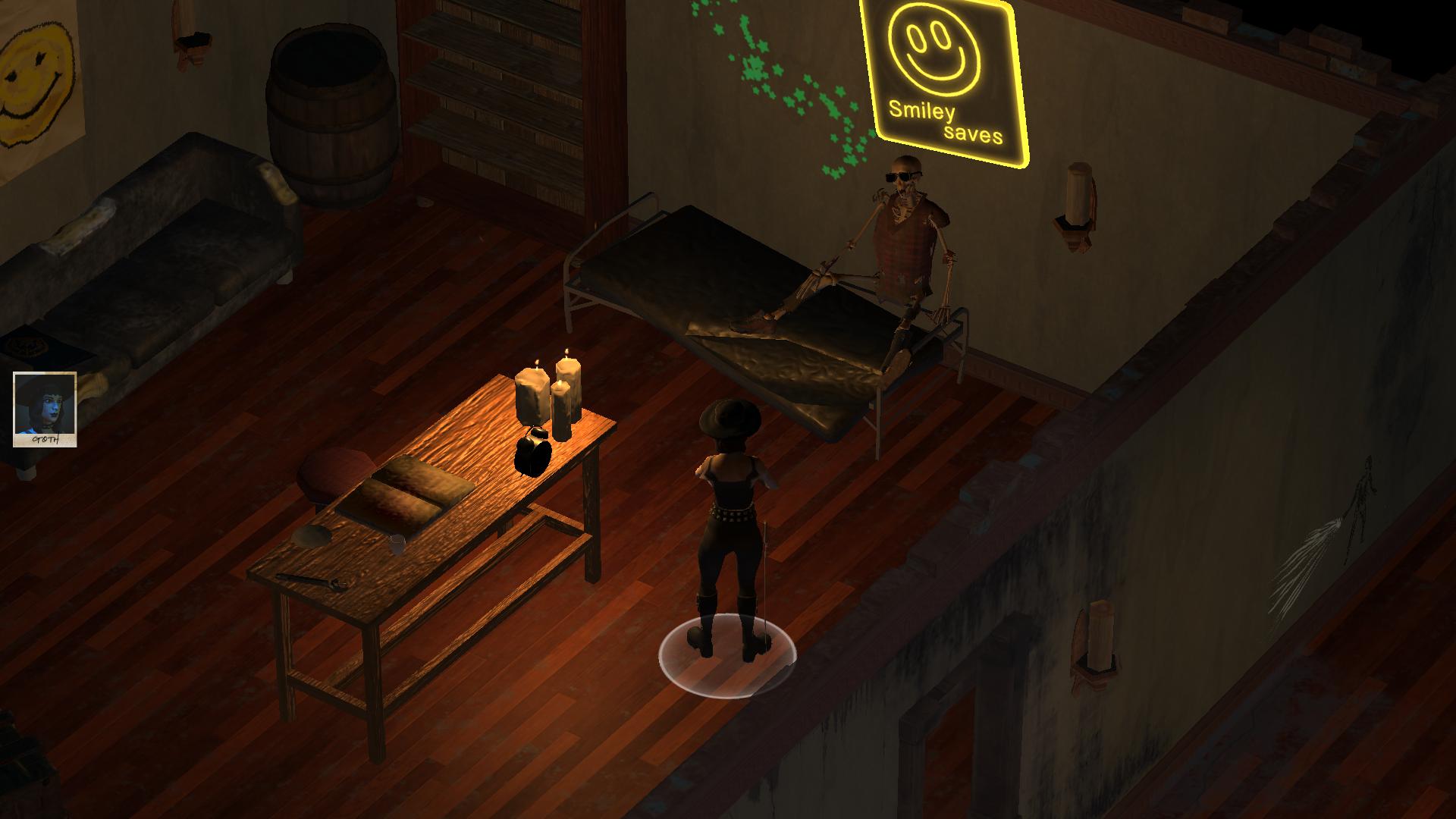
The Spanish conquistador?
GM: There is a Spanish conquistador. He's a rebel as well. He was part of Cortez's crew going to the Americas very on. He was actually quite an ethical man, his brother was a priest, he actually didn't want to slaughter these people and take their gold. He rebels, joins the Incans, helps them against the Spanish. The Incan Empire survives.
Our musketeer, we're still choosing a name but it might be Sabine. Sabine, she's a female musketeer, she comes from a timeline where Louis the Sun King was assassinated by his own sister Louisa, the Sun Queen, and they instituted a reign that was still an aristocracy but they did introduce some more freedoms for serfs allowing them to purchase land and actually improve the economy. They remained in power.
The French Revolution never happened?
GM: It never happened. And all of those timelines, all of those successful rebellions taking place is a hint to our broader story about what we think really happened in the 1990s.
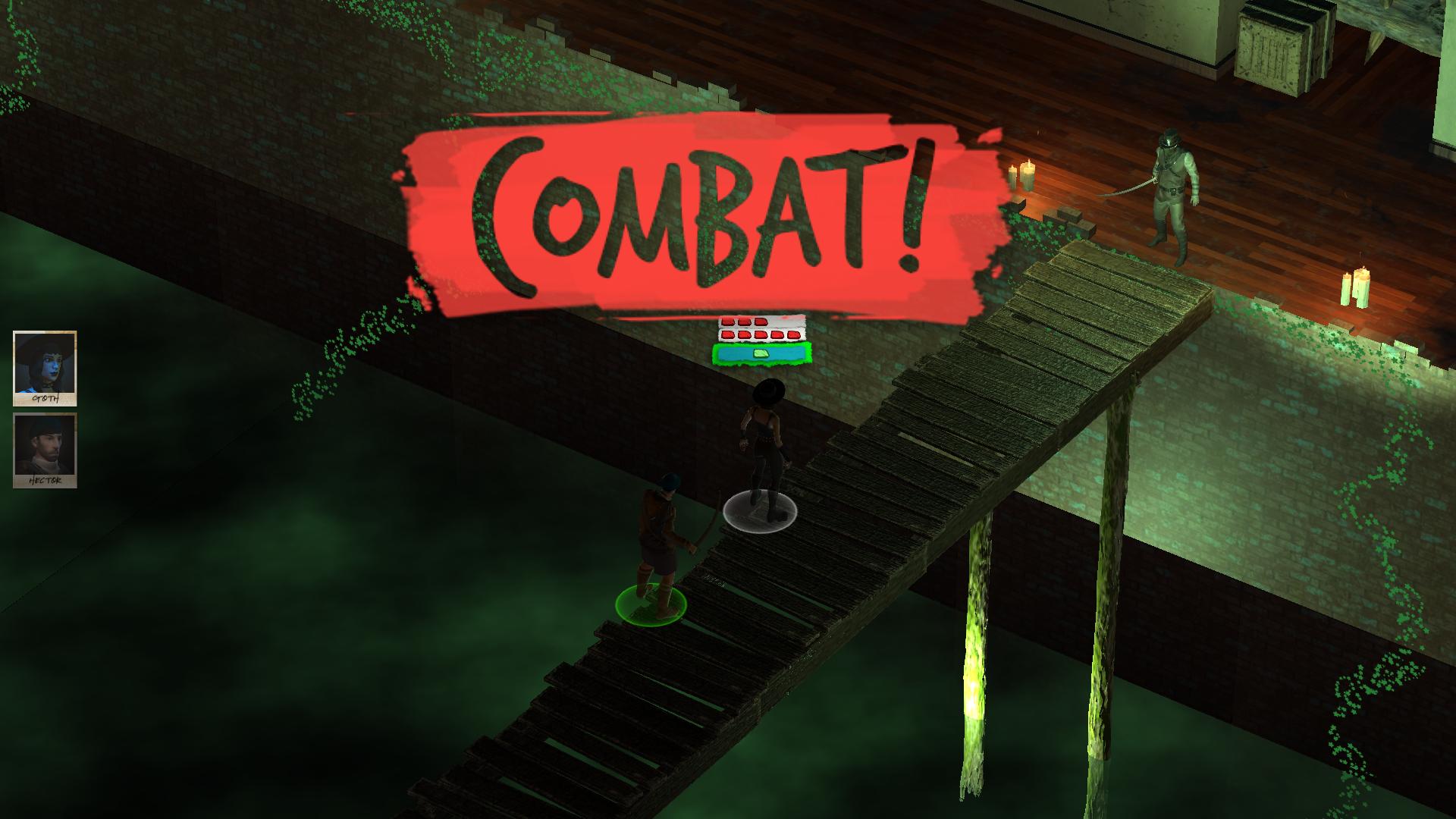
One last thing I have to ask you about is the combat. It's turn-based, but with simultaneous turns?
GM: Which is a mouthful, so I try to shorten it to "same-phase". We'll probably change that. Each turn takes three seconds. Say you've got a guy 50 yards, 50 meters away, you've got a musket and you want to shoot that guy. You can fire a quickshot from the musket so that's one second to draw the musket, one second to fire it. That's fair enough. In the time it takes you to fire that weapon, that guy could effectively cross the board because he has his own turn. He might see you lining up a shot with a long smooth-bore rifle, he's like, "Right, I think I'm going to duck." Maybe he goes behind cover, maybe he goes prone, maybe he runs in the opposite direction out of the line of fire, avoiding the shot.
There's no randomness, it's all about positioning and reading your opponent.
Gil Maclean
On the flipside you can see at the start of the turn which direction people are gonna move. They play a telegraphing animation. Like in Dark Souls we've put in work to make that read, but from an isometric perspective. Say you're in a one-on-one stand-up melee fight, sword versus sword, against a highwayman. The highwayman pulls out a sword while you're planning your turn. You can look at it and go, "Looks like he's gonna do a big swing." In our system a heavy attack takes three seconds to execute, or a full turn. A fast attack might only take one second. If you're standing toe-to-toe with him, you've got a dagger, you shank him quickly before he gets his attack off, interrupting him. We do have a sidestep in there, you can sidestep that blow, he'll become overbalanced, then exposed for the next turn.
If you get the interrupt does that prevent him from being able to attack or does it just cause damage before he does?
GM: It depends on the strength of your attack. It's derived from the weapon and your character, if you're strong enough you can interrupt that attack.
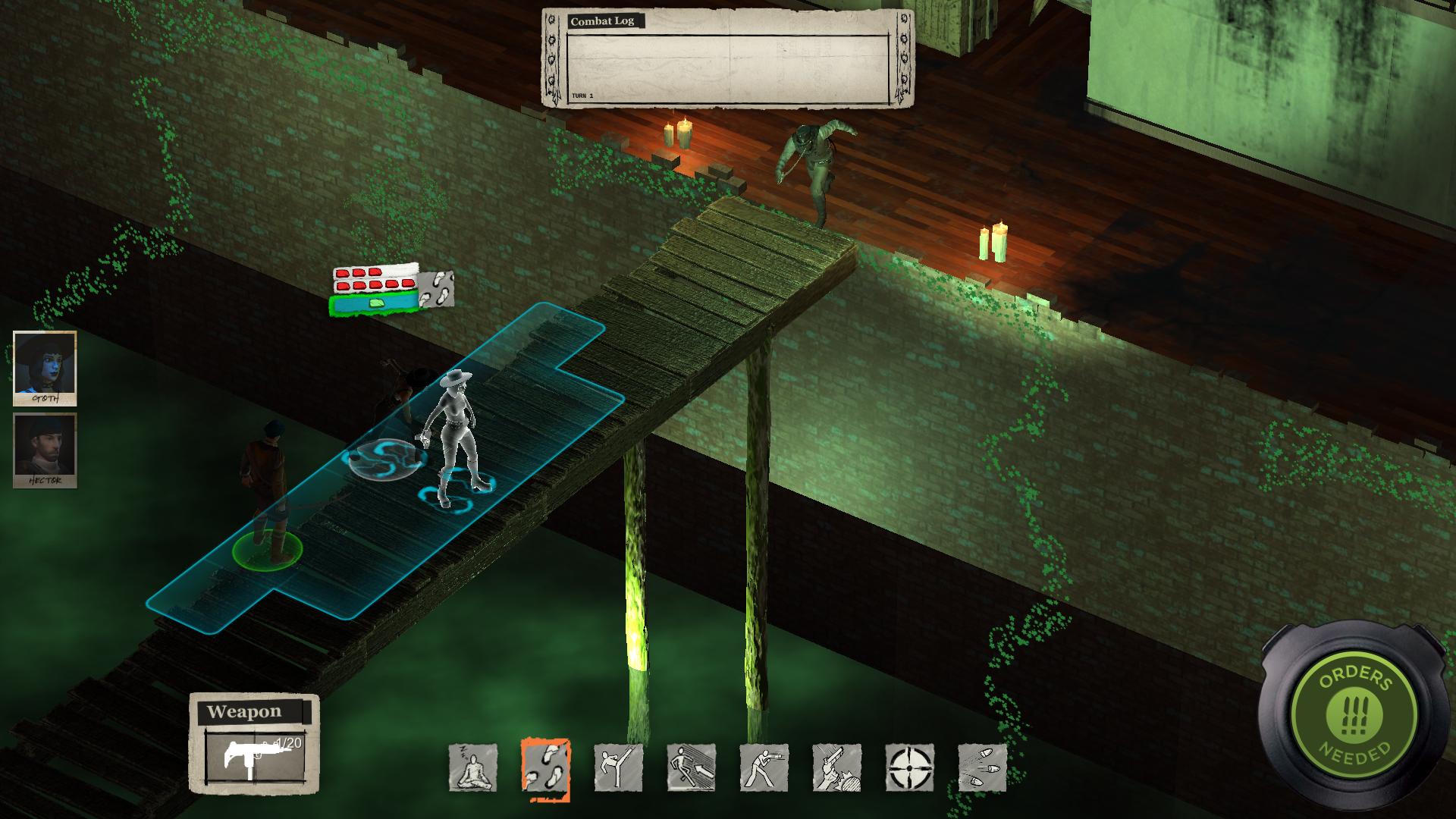
I was in a situation where I kicked someone as they kicked me, and we both fell down.
GM: You both had equal strength and skill level. We're using what we call imperfect information. There's no randomness, it's all about positioning and reading your opponent. You can see an enemy telegraphing their move but also if you train as a swordsman or say you go to the Vietnam War, you spend some time there as a Viet Cong guerrilla, you learn the fine art of assault rifle maintenance and tuning, that gives you a little bit of insight into what other enemies will do. An enemy who is a highly trained marksman has say a set of five or six abilities.
I feel like an underserviced niche.
Gil Maclean
If you're a novice gunfighter you can sort of see them moving and aiming, if you're a fully trained SEAL Team Six dude you get a little ghost animation of what they're going to do during their turn when you plan yours. They're gonna roll to the side, they're gonna lob a grenade, they're reloading. The higher-trained your character is the more information you get about enemies.
Any character can train in any skill, you can go back to Ancient Egypt or Greece and train in polearms or spears, then you can bring that back to the early modern era or some of our other settings we haven't talked about yet.
It sounds like you have a lot of ideas for historical periods to visit.
GM: I love that stuff. I grew up on games like ... Darklands by MicroProse. I actually noticed the original designer of Darklands is looking to shop around to find help making a sequel. There's a lot of people making straight historical RPGs and one day I'd like to make one but we're pretty keen on this idea at the moment, we're trying to marry a few of our loves. Historical nerdiness, hardcore RPGs, and what really happened in the 1990s.
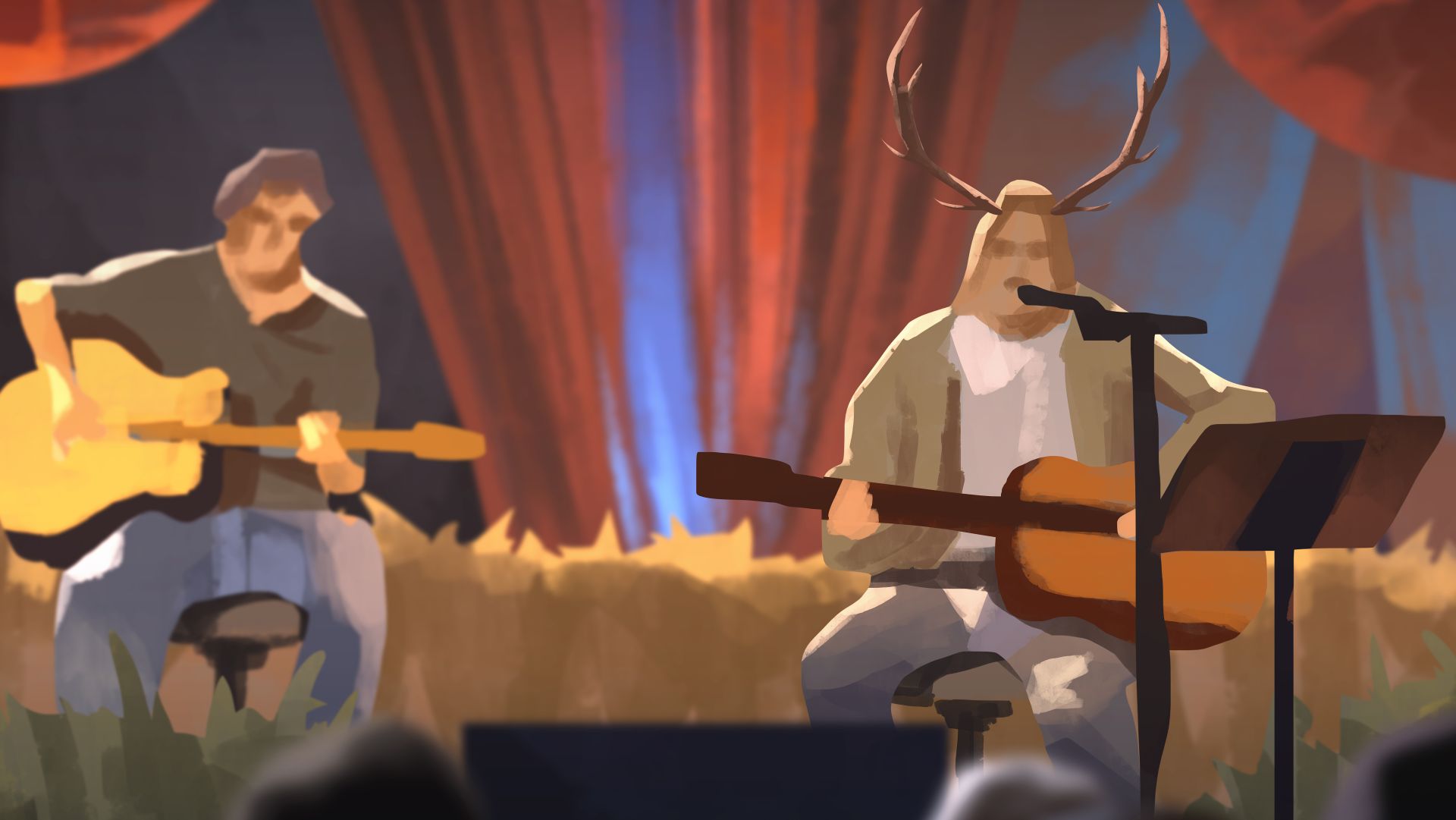
So the plan is Early Access and a full release next year?
GM: Basic plan. We like to say that we think we have a year to a year and a half of full-time dev to go but we don't know exactly when that year will start. Hopefully we can sort that out soon.
It's a single-player hardcore RPG. We've had a fair bit of interest but I want to focus on PC first—let me rephrase that, I want to prove the game on PC first, with the audience I care about, which is hardcore RPG players because I think they're underserviced. I feel like an underserviced niche. I wake up in the morning like, "Hey, I'm an underserviced niche." I want to prove it there, I want to build the audience there and I want the game to be PC first for that reason. We'll see how it goes.

Jody's first computer was a Commodore 64, so he remembers having to use a code wheel to play Pool of Radiance. A former music journalist who interviewed everyone from Giorgio Moroder to Trent Reznor, Jody also co-hosted Australia's first radio show about videogames, Zed Games. He's written for Rock Paper Shotgun, The Big Issue, GamesRadar, Zam, Glixel, Five Out of Ten Magazine, and Playboy.com, whose cheques with the bunny logo made for fun conversations at the bank. Jody's first article for PC Gamer was about the audio of Alien Isolation, published in 2015, and since then he's written about why Silent Hill belongs on PC, why Recettear: An Item Shop's Tale is the best fantasy shopkeeper tycoon game, and how weird Lost Ark can get. Jody edited PC Gamer Indie from 2017 to 2018, and he eventually lived up to his promise to play every Warhammer videogame.

